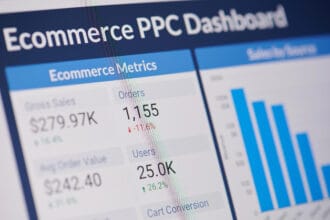Big data has significantly changed the way companies do business. Sean Kon recently wrote an article for Fast Company talking about how small businesses investing in big data “are primed to strike it rich.”
- Data-Driven Companies Need to Carefully Abide by Big Data Regulations
- Why Exactly Is Compliance with Data Protection Regulations Important?
- Who Has to Comply with Data Protection Regulations?
- What Are the Benefits of Compliance with Data Protection Regulations?
- What Happens If Organizations Don’t Comply with Data Protection Regulations?
- The Basics of Compliance with Data Protection Regulations
However, there are downsides and challenges for businesses trying to take advantage of the growing need for big data. One of the biggest things that they have to think about is the growing number of regulations that can make it more difficult to use big data without running into legal trouble. The GDPR is one of the biggest big data regulations that companies need to follow, especially if they know that they have customers in the European Union.
All companies that rely on big data will need to make sure that they follow these regulations. Keep reading to learn more.
Data-Driven Companies Need to Carefully Abide by Big Data Regulations
Data rules the world, and it’s no surprise that data protection regulations have become one of the most important aspects of running a business. With more businesses collecting and storing personal information from users, customers, and clients, there is an increased need to ensure this data is managed properly in order to protect users from potential misuse or abuse.
Compliance with data protection regulations ensures that organizations are accountable for how they handle, store, use, and share personal data. It also ensures organizations are transparent about their privacy practices and provide a secure environment in which users can access and manage their data.
But why exactly is it important? Let’s try to figure in this article. Keep reading!
Why Exactly Is Compliance with Data Protection Regulations Important?
Compliance with data protection regulations is important because it helps protect the rights of individuals and their data. It ensures that organizations are accountable for how they handle, store, use, and share personal data. It also provides individuals with a secure environment in which to access and manage their own information.
Furthermore, compliance helps organizations ensure that their customers have control over their data and that they are aware of how it is being used.
Finally, compliance ensures that organizations are transparent about their privacy practices. This helps to build trust between companies and their customers, which can increase customer loyalty.
Who Has to Comply with Data Protection Regulations?
All organizations that collect, store, or process personal data must comply with data protection regulations. This includes any organization that holds customer information or collects and stores personally identifiable information (PII). The regulations are designed to protect the privacy of individuals and their data, so it’s important for companies to be aware of their responsibilities in this regard.
For example, healthcare providers must comply with HIPAA regulations to ensure patient data remains secure and confidential. There are also specific standards for organizations that process financial information to protect against fraud and identity theft.
What Are the Benefits of Compliance with Data Protection Regulations?
Compliance with data protection regulations can help organizations to protect their customers’ data and prevent unauthorized access or misuse. It also helps to build trust between customers and companies, as customers will know their personal information is secure. Additionally, compliance with data protection regulations ensures organizations are transparent and accountable for their practices, which creates a positive reputation and can result in increased customer loyalty.
Such regulations should be applied to both organizations’ employees and any independent contractors. To maintain compliance, clear contracts should be implemented that outline the contractor’s responsibilities regarding data protection and confidentiality. This includes specific clauses on adhering to privacy laws like GDPR or CCPA, depending on the region. Contractors must also agree to follow internal data security protocols, including how data is handled, stored, and transferred.
Data protection should also be applied both ways. When it comes to independent contractor pay stub, it’s essential that any personal information displayed—such as names or payment details—follows secure handling procedures. Additionally, the payment records and invoices should respect confidentiality agreements, which protect both the contractor and the business.
What Happens If Organizations Don’t Comply with Data Protection Regulations?
Failure to comply with data protection regulations can result in serious penalties, including fines or criminal prosecution. In addition, organizations that fail to comply with data protection regulations may face legal challenges and reputational damage. In some cases, reputational damage might be even more severe than financial.
Organizations should ensure that their data practices are compliant with all applicable regulations at all times, as this is essential for protecting the rights of individuals and their data. For companies that handle or process large amounts of personal data, it’s recommended to have a dedicated team to review and enforce compliance with relevant regulations. This can help avoid any potential issues and ensure the safety and security of customer data. In today’s digital world, compliance with data protection regulations is essential for any organization that handles personal data.
The Basics of Compliance with Data Protection Regulations
Here are the pillars of compliance with regulations regarding information protection.
- Developing and implementing a data protection policy.
- Investing in appropriate security measures.
- Training staff on the policy and relevant guidelines.
- Regularly monitoring compliance with data protection regulations.
- Taking swift action to remediate any issues that arise.
- Providing users with access to their data and the ability to manage it.
- Being transparent about how personal data is used and shared.
Compliance with data protection regulations is essential for protecting individuals’ privacy, maintaining a good reputation, and staying compliant with relevant rules and guidelines. Organizations should take steps to ensure they are up-to-date on applicable laws, invest in appropriate security measures and provide regular training to staff. Doing so will help organizations protect their customers, build customer trust and ultimately succeed in business.
The Bottom Line
In conclusion, understanding the importance of compliance with data protection regulations is essential for organizations to protect individuals’ rights and their data. Organizations must ensure they are familiar with relevant rules and guidelines and take appropriate steps to comply with them. Doing so will help establish trust between customers and organizations, as well as contribute to a safer digital environment for everyone.











